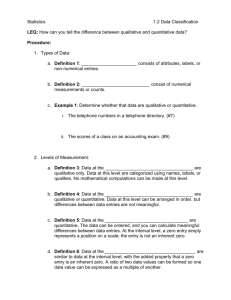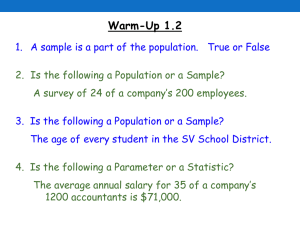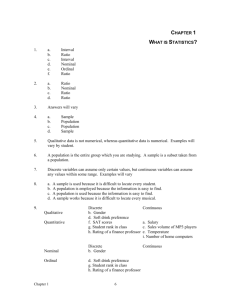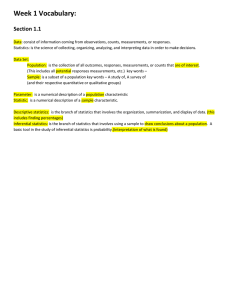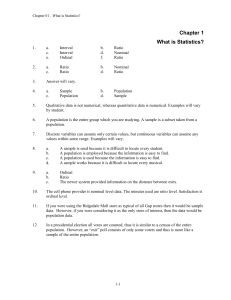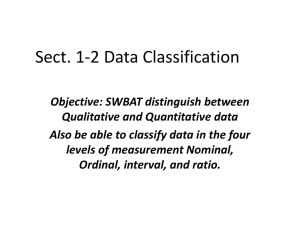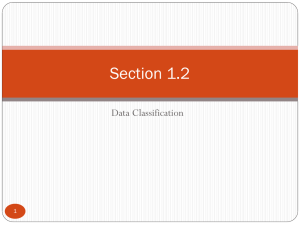Statistics Chapter 1 – 2 Introduction to Statistics Data Classification
advertisement
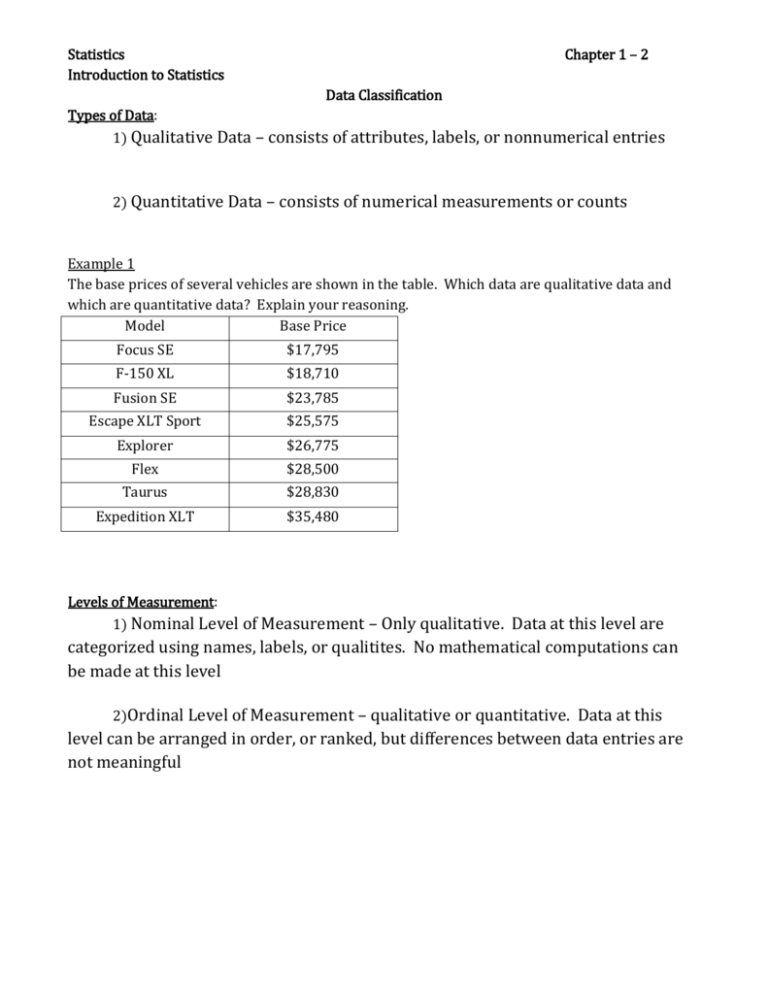
Statistics Introduction to Statistics Chapter 1 – 2 Data Classification Types of Data: 1) Qualitative Data – consists of attributes, labels, or nonnumerical entries 2) Quantitative Data – consists of numerical measurements or counts Example 1 The base prices of several vehicles are shown in the table. Which data are qualitative data and which are quantitative data? Explain your reasoning. Model Base Price Focus SE $17,795 F-150 XL $18,710 Fusion SE $23,785 Escape XLT Sport $25,575 Explorer $26,775 Flex $28,500 Taurus $28,830 Expedition XLT $35,480 Levels of Measurement: 1) Nominal Level of Measurement – Only qualitative. Data at this level are categorized using names, labels, or qualitites. No mathematical computations can be made at this level 2)Ordinal Level of Measurement – qualitative or quantitative. Data at this level can be arranged in order, or ranked, but differences between data entries are not meaningful Example 2 Two data sets are shown. Which data set consists of data at the nominal level? Which data set consists of data at the ordinal level? Explain your reasoning. Top Five TV Programs (from 2/12/12 to 2/18/12) 1. American Idol – Tuesday Network Affiliates in Pittsburgh, PA 2. American Idol – WTAE (ABC) Wednesday 3. Grey’s Anatomy WPXI (NBC) 4. House KDKA (CBS) 5. CSI WPGH (FOX) The two highest levels of measurement 3) Interval Level of Measurement – can be ordered, and you can calculate meaningful differences between data entries. At the interval level, a zero entry simply represents a position on a scale, the entry is not an inherent zero 4) Ratio level of Measurement – similar to data at the interval level, with the added property that a zero entry is an inherent zero. A ratio of two data values can be formed so that one data value can be meaningfully expressed as a multiple of another. Inherent zero – A zero that implies “none” Example 3 Two data sets are shown. Which data set consists of data at the interval level? Which data set consists of data at the ratio level? Explain your reasoning. 2010 American League Home Run Totals (by Team) Baltimore 164 New York Yankees’ Boston 192 World Series Victories (Years) Chicago 236 1923, 1927, 1928, 1932, 1936 Cleveland 196 1937, 1938, 1939, 1941, 1943 Detroit 203 1947, 1949, 1950, 1951, 1952 Kansas City 124 1953, 1956, 1958, 1961, 1962 Los Angeles 159 1977, 1978, 1996, 1998, 1999, Minnesota 143 2000 New York 210 Oakland 175 Seattle 172 Tampa Bay 190 Texas 183 Toronto 199 Use the following tables to summarize which operations are meaningful at each of the four levels or measurement. Level of Put data in Arrange data Subtract Determine if one data Measurement categories in order data values value is a multiple of another Example of a Data Set Nominal Level (Qualitative data) Ordinal Level (Qualitative or Quantitative data) Interval Level (Quantitative data) Ratio Level (Quantitative data) Meaningful Calculations

